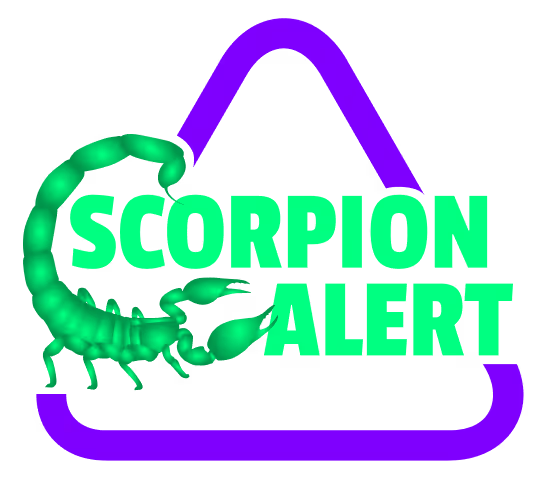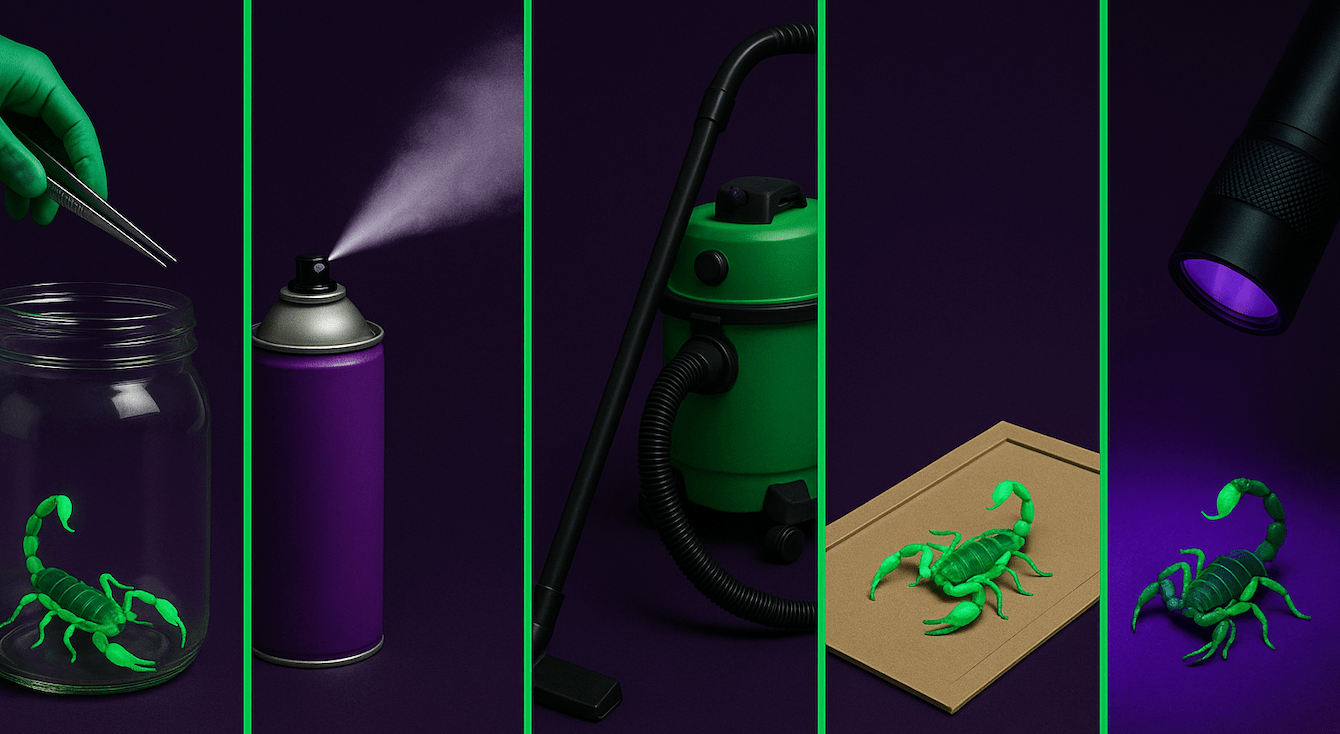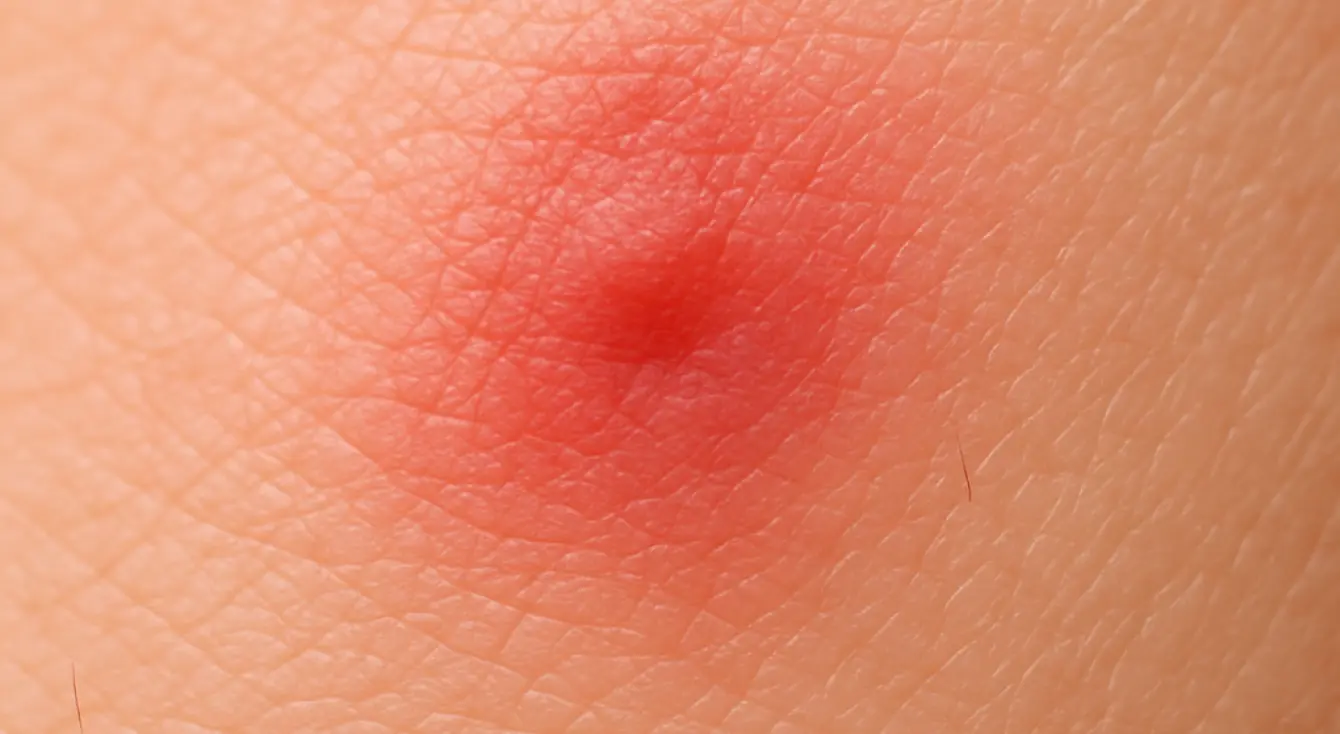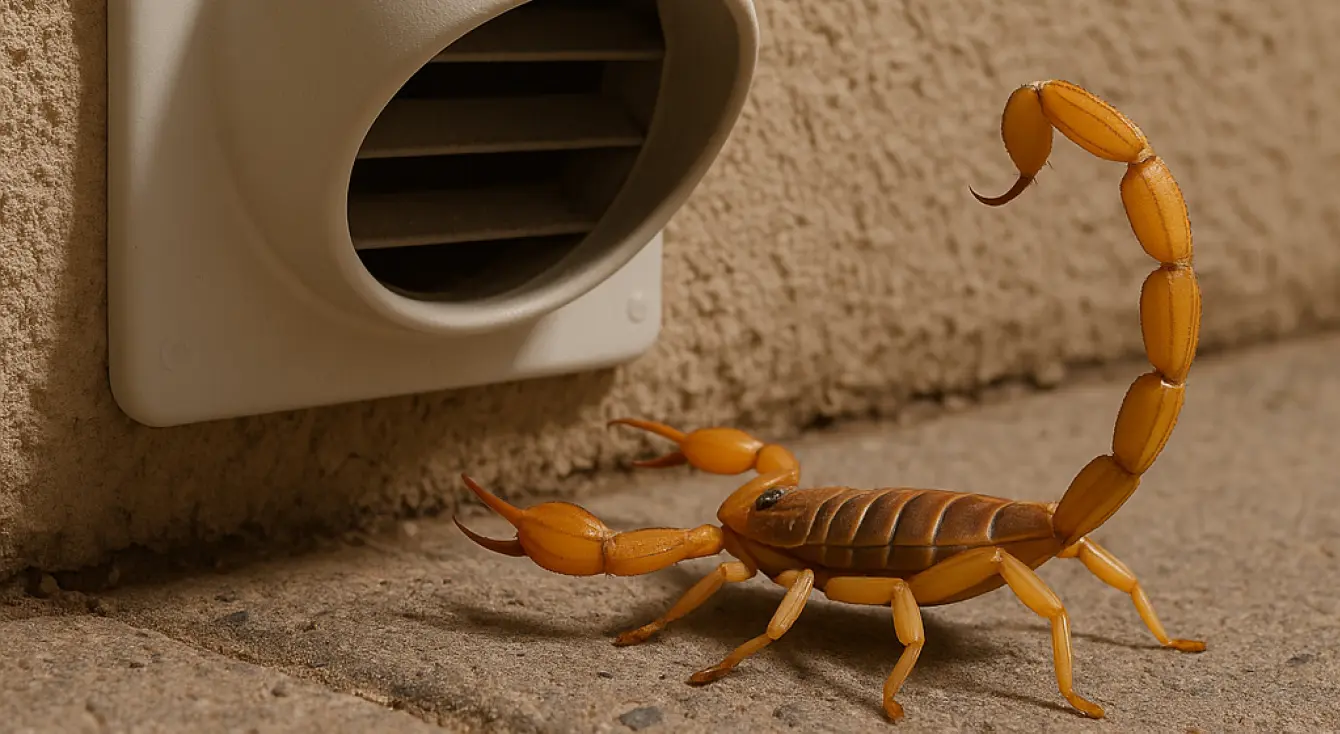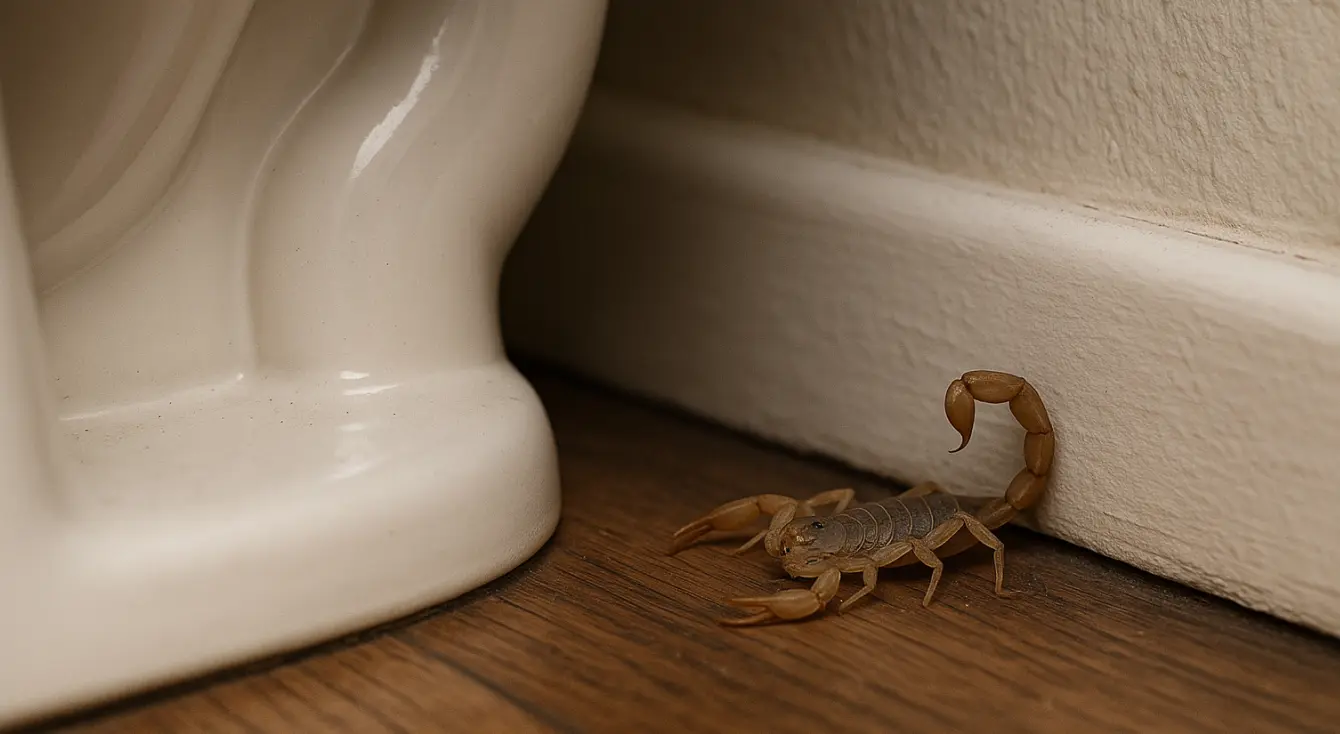When your phone buzzes with a scorpion alert, it’s natural to panic—especially if you have kids, pets, or you’ve been stung before. But take a breath: the hardest part is already done. You detected it early.
Your first instinct might be to squash it—and hey, no judgment. But if you’d rather not go full gladiator on a scorpion, there are calmer, cleaner ways to deal with it. From jars to vacuums, we’ve got you covered.
🥇 The Glass + Paper Method
It’s late. Your phone buzzes. Stay calm and grab a tall drinking glass or jar—something clear and sturdy. Why glass? Because scorpions can’t climb smooth surfaces. Once they’re in, they’re not coming out. You’ll also want your UV flashlight handy for the next part.
Head to the room where your Scorpion Detector triggered the alert. Switch on your UV light and scan along the floor edges. If you got there quickly, the scorpion will likely be nearby. Scorpions aren’t fast when they don’t feel threatened, so look carefully for that distinct bluish-green glow under the UV beam.
Once you spot it, move slowly and confidently. Lower the glass gently over the scorpion.
-min.png)
Now take a breath. You did it.
Turn on the room lights and, when you're ready, slide a stiff piece of paper or thin cardboard under the glass. Press the paper firmly against the rim as you tilt slightly—this seals the scorpion in without giving it room to slip through. Lift both together in one smooth motion, and then flip the glass upright. The scorpion will slide to the bottom, safe and contained.
Nice work. That was the hard part.
🗑 How to Dispose Without Inviting It Back
If it’s too late to take it outside—or you’d rather wait until daylight—you can leave the scorpion in the glass overnight. Just make sure the paper or lid is secure and the glass is placed somewhere safe from pets and kids. A heavy book on top helps with peace of mind.
In the morning, take your sealed glass far outside—at least 50 feet from your home. Choose a clear, open area away from walls, woodpiles, or heavy brush. Gently tilt the glass and let the scorpion crawl out on its own. Avoid flicking it into the bushes (tempting, we know), as it might come right back.
Once you’re home, wash the glass with hot water and soap, or just toss it in the dishwasher.
Then take a deep breath—and maybe a strong drink from a different glass. You’ve earned it.
2. Long Tongs or Grabber Tool
If you’re uncomfortable getting too close, use a long set of kitchen tongs or a grabber tool.
How to do it:
- Gently grasp the scorpion at mid-body
- Avoid squeezing too hard
- Place it in a container and release outside
Tip: Never pick one up with your hands—even with gloves.
3. Encourage It to Climb Onto a Surface
Sometimes scorpions will crawl onto a broom, stick, or dustpan if gently coaxed.
How to do it:
- Place the object near the scorpion
- Use light taps behind it to guide movement
- Carry it outside once it climbs on
Tip: Only attempt this with slow-moving or cornered scorpions.
4. Trap and Relocate With a Container
Use a small plastic container, food storage tub, or critter catcher tool to safely trap and transport the scorpion.
How to do it:
- Trap the scorpion under the container
- Slide a lid or stiff paper underneath
- Carry it outside and release
Tip: Avoid using containers that could collapse or be punctured.
5. Use a UV Flashlight to Spot Others
Scorpions are usually not alone. If you found one, there might be more.
How to do it:
- Use a UV flashlight to scan baseboards, closets, and dark corners
- Spot and safely remove any others before they disappear again
Tip: This also helps ensure you won’t step on one later.
You don’t have to kill scorpions to stay safe—you just need the right tools and a little patience. With these humane methods, you can clear your home without harm and maybe even help one of nature’s oldest survivors find its way back outside.
